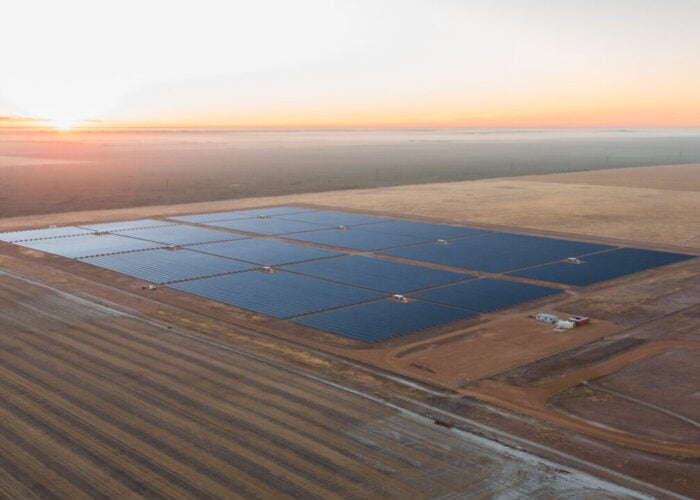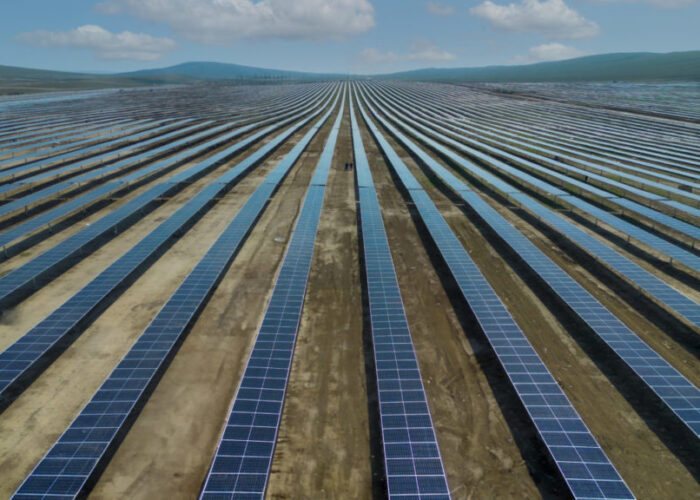Andy Colthorpe and Ben Willis profile some of the companies and technologies making waves in the fast-changing world of stationary energy storage, in a feature article which originally appeared in the seventh issue of PV Tech Power. To be emailed every issue of PV Tech Power first, and a host of other benefits, sign-up for a free PV Tech Essential membership today.
Try Premium for just $1
- Full premium access for the first month at only $1
- Converts to an annual rate after 30 days unless cancelled
- Cancel anytime during the trial period
Premium Benefits
- Expert industry analysis and interviews
- Digital access to PV Tech Power journal
- Exclusive event discounts
Or get the full Premium subscription right away
Or continue reading this article for free

The term disruptor is thrown around a lot these days in a world rapidly facing digitisation and the fight to stay relevant is becoming ever more competitive in energy storage. While technological breakthroughs are always exciting, to paraphrase an old saying, there’s a lot that can go wrong between filling a cup with liquid and putting it to your lips. In the race to commercialise technologies and business models for a mass market still in its infancy, the real disruptors in energy storage aren’t just in the lab, they are making a real difference in houses, commercial buildings and on and off the grid.
We have carefully selected 20 such technology and service providers for this feature, with commentaries by energy storage market analysts Logan Goldie-Scot at Bloomberg New Energy Finance (BNEF) and Brett Simon of GTM Research.
“When assessing new companies, we are not looking for great ideas which are simply impossible to implement or are ahead of their time,” Goldie-Scot says. “We are looking for companies that are currently addressing big opportunities, with innovative solutions and have proven track records.
“One way of assessing them is by looking at potential to scale, innovation and momentum. Many energy storage technology companies are clearly innovative but have yet to show they can scale, and momentum is often lacking. The ones that tick all these boxes are incredibly impressive.”
Company: Redflow. Technology: ZCell
The world’s first residential flow battery seemed a surreal proposition to some but the device received its real-world launch in late March. Australian company Redflow is targeting its domestic market for solar self-consumption.
Falling feed-in tariffs (FiTs) and high energy prices are making behind-the-meter storage an increasingly attractive proposition. Australian tech entrepreneur Simon Hackett’s company believes flow batteries, considered too bulky for residential applications in other countries, could work Down Under, where population density is considerably lower than most developed nations.
Prior to the launch of the household system, Z Cell, which comes with a standard 10kWh of energy storage, Redflow focused on “off-grid and fringe-of-grid applications”, GTM Research’s Brett Simon says. Flow battery technology still needs to be proven, according to Simon.
“The release of a first residential flow battery is fascinating but I am not yet convinced that it will displace lithium-ion in that segment,” Logan Goldie-Scot at BNEF says, adding that while flow batteries can be effective in longer duration storage applications, the more lucrative applications are shorter duration, making commercialisation a tricky task.
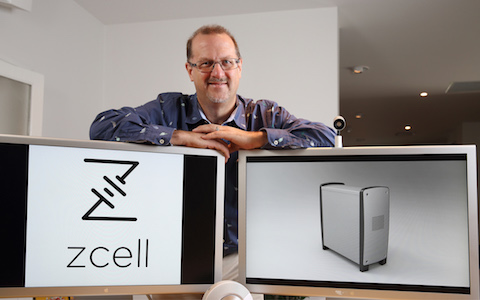
Company: Tesla. Technology: Powerwall and Powerpack
US EV manufacturer Tesla’s debut play in the stationary storage sphere needs little introduction. The company’s CEO Elon Musk announced the Tesla Powerwall and Powerpack products to an expectant public in 2015, since when the hype has shown little signs of going away.
Available for residential, commercial and utility-scale applications, Tesla claims its products raise the bar on cost-competitiveness by virtue of the production scale it expects to achieve at its Nevada Gigafactory. Some have questioned the trumpeted price advantages, particularly for the Powerwall, claiming that total system costs are much higher than Tesla admits.
“Tesla has historically installed a significant number of systems in California, and Tesla expects substantial cost reductions once the Gigafactory reaches scale, though it remains to be seen if Tesla can actually deliver on these claims. Nevertheless, other battery vendors are projecting similar cost trajectories, and it remains to be seen how well Tesla will compete against established vendors,” says GTM’s Simon.
Company: Sonnen. Technology: SonnenCommunity
Germany’s market leader in residential energy storage with more than 10,000 systems sold, Sonnen has quickly identified that commoditisation of battery storage could impose aggressive competition on providers. The company’s goal is to be seen as an energy services provider as well hardware vendor.
After running a series of trials including aggregated virtual power plants in its homeland, Sonnen last November launched perhaps its most daring and innovative ‘product’, SonnenCommunity. The scheme lets Sonnen battery system owners – and non-system hosts who can join for a fee – trade the surplus energy in their systems, using the grid as a virtual large-scale battery.
“[The] SonnenCommunity platform offers an intriguing opportunity for customers to trade electricity with one another, though this programme is still in its early stages,” Simon says. This makes the company one of the few “pioneers” of aggregating behind-the-meter residential storage, adds Goldie-Scot says. Both Goldie-Scot and Simon say that it will be interesting to see if Sonnen can and will take the idea to other markets it is active in such as North America and Australia.
Company: S&C Electric. Technology: PureWave
S&C Electric’s family of energy storage-management systems, PureWave, offers solutions from 25kW up 100MW for commercial, utility and off-grid applications.
The company has been involved in some significant pioneering trials around the globe, allowing it to gain valuable experience proving the case for storage in a variety of settings. These include a project in Texas that links four separate micro-grids and a variety of generation source, including PV, as well storage. The company has also built one of the largest battery projects in Europe to date, a 6MW/10MWh system in the UK.
“S&C has so far been focusing on larger systems, and recently completed a 7 MW project with Half Moon Ventures in the Town of Minster, Ohio which will provide multiple services including frequency regulation in the PJM market, T&D deferral, power quality improvement, and peak demand shaving,” says GTM’s Simon.
Company: Panasonic. Technology: Smart Towns
A new Zero Energy Homes (ZEH) standard will be mandatory from 2020 in Japan, where as many as 1 million new houses are built annually. Tesla’s Gigafactory competitor-collaborator Panasonic and other Japanese firms have long been selling complete kits for residential PV customers, adding storage as backup or self-consumption solutions more recently.
Panasonic is even engineering, designing and building its own ‘smart town’ near Yokohama. The company’s next gen home PV offerings will also include management systems to enable trading of power. While this is still an early-stage function, Japan’s electricity market is in an ongoing process of liberalisation which extended to retail sales in April.
Panasonic is already one of the world’s biggest battery vendors, Simon says, with production volume giving it an “edge in battery cost”. “Smart Home is still a young concept, but may offer additional opportunities for residential energy storage,” he says, also referencing recent activities by the company in solar-plus-storage for homebuilding companies in Canada.
Goldie-Scot meanwhile says that although Panasonic is trialling residential storage with utilities in Australia, “it is not clear it is proactively pushing into the [residential storage] market as quickly as some competitors”.

Company: NGK Insulators. Technology: NaS Battery
Japanese firm NGK Insulators was an early mover in the storage business through its sodium-sulphur (NaS) battery and has around 3GWh installed worldwide now, including the world’s largest battery system in Japan. Sodium-sulphur is a form of molten salt technology that is particularly suited long-duration applications.
Despite the early toehold the company has gained, lithium-ion batteries appear to be the latest technology of choice for grid-scale storage projects, according to a recent study from Lux Research. Meanwhile, flow batteries are also waiting in the wing as an alternative long-duration technology.
BNF’s Goldie-Scot says: “Between 2007 and 2010, NGK had 66% market share for stationary energy storage. However, it has only won a couple of projects recently, albeit large ones such as the 35MW-280MWh project in Italy for Terna. If flow batteries are able to scale up effectively, this will pose a major challenge to NGK which has long been the only available option for customers looking for long-duration energy storage systems.
Company: Sunverge. Technology: Solar Integration System
While others have also trialled virtual power plant (VPP) functions for aggregated residential behind-the-meter storage, US company Sunverge has made headlines for related activities that include attracting significant investment – around US$20 million – from Australia’s biggest utility, AGL, in the first quarter of this year.
CEO of the Australian Renewable Energy Agency (ARENA), Ivor Frischknecht, said the partnership “will accelerate the roll out of a state-of-the art grid integrated battery storage solution to Australia’s large household storage market”.
The company executed its first VPP project in Canada earlier this year, in which the technology’s capabilities in reducing peak demand, providing frequency response and other services to the network will be trialled in 20 houses. These will be able to ‘time shift’ their solar energy for the Powerstream project in Ontario, which applies time-of-use pricing to residential customers.
“These [virtual power plant] projects are in the early stages, but the results may offer new business models for utilities and additional opportunities to provide grid services with aggregated behind-the-meter storage,” Simon says.
BNEF’s Logan Goldie-Scot meanwhile says AGL’s strategic investment into Sunverge “could position it well in Australia as well [as the US]”.
Company: Aquion. Technology: Aqueous Hybrid Ion battery
Aquion’s Aqueous Hybrid Ion battery uses sodium-ion technology (essentially saltwater) and is claimed to be one of the cleanest batteries on the market. Aside from flow and NaS-based batteries, Aquion’s is another technology that sits firmly in the long-duration camp.
The company has been particularly successful in securing early-stage funding to develop its technology and is targeting a cost of US$160 per kWh when it eventually scales up production. However, without only a few significant deployments under its belt, the jury is still out whether it Aquion will fulfil its early promise.
“Aquion continues to attract VCPE funding and has secured nearly US$200m to date. The company remains very early stage though and has only deployed a small number of relatively small projects,” says Goldie-Scot.
Simon adds: “Aquion’s technology has typically been deployed in markets where electricity prices are high, such as a project under development in Puerto Rico. Aquion’s aqueous battery technology still has only a handful of commercial deployments. Aquion has significant cost reduction goals.”
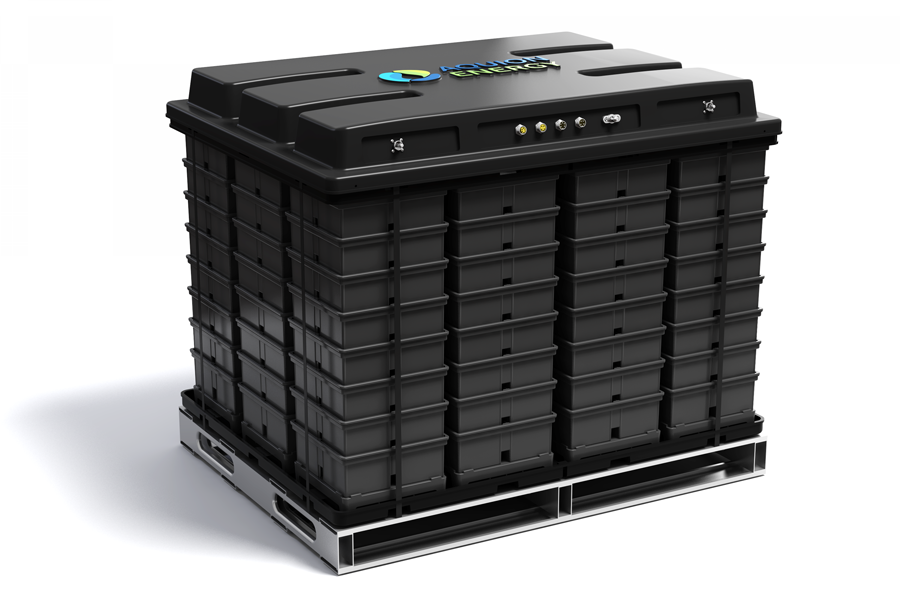
Company: Green Charge Networks. Technology: Greenstation
Anticipating the now seemingly inevitable growth of EVs and fast DC chargers at commercial premises like supermarkets, municipal facilities and hotels, Silicon Valley’s Green Charge Networks is using energy storage to mitigate demand spikes from EV charging in its home state of California and elsewhere.
The company looks to be building up scale quickly. It has a partnership with ChargePoint, which has over 22,000 EV chargers in operation, a manufacturing deal with Flextronics and works with US utility Duke Energy and REC Solar. It is also among those repurposing ‘2nd life’ EV batteries with Nissan.
French utility company Engie (formerly EDF Suez) acquired an 80% stake in Green Charge in May.
“This is the first major utility deal for a majority stake in an energy storage company to date,” Goldie-Scot says of the Engie acquisition, adding that while Green Charge’s ‘no upfront cost’ model is capital intensive, being bought out Engie will give it a US$10 billion balance sheet to lean on. Goldie-Scot believes Green Charge has about 48MWh of storage deployed or under construction.
“It’s shared savings model can make storage for peak demand management attractive for customers with particular loads and in markets with the right tariff structure,” Simon adds.
Company: ViZN. Technology: Zinc-iron flow battery
ViZn is another producer looking to make its mark in the long-duration flow battery market. Its technology, based on zinc-iron chemistry, is available in various configurations, and is aimed larger scale end of the market, for utility, micro-grid and off-grid applications such as mining. The company recently took a big step forward in proving out its technology when it was chosen to supply a 2MW/6MWh grid-balancing system in Ontario Canada.
“Flow batteries are an emerging technology, and still need proof of commercial bankability,” says GTM’s Simon. “As costs fall, the technology may become more appealing for long-duration (3+ hour) applications. ViZn’s flow battery technology is a non-acid medium, which aims to eliminate the pump and component erosion found in other flow batteries and thus improve lifecycle system costs and performance. ViZn has a strategic manufacturing partnership with Jabil.”
Goldie-Scot adds: “This company is in a similar boat to Aquion: it has attracted a fair amount of investment but has yet to have a meaningful impact on the market.”
Company: Ideal Power. Technology: Sundial
Having made its name as a provider of power converters, including acting as equipment provider to Sharp’s US commercial storage offerings, targeting China’s C&I sector and supplying 125kWh magnetic power converters for large-scale projects, Ideal Power has also now launched Sundial, an all-in-one inverter tailored to be integral to solar-plus-storage solutions for businesses.
SunDial is a fully isolated PV string inverter with an integrated PV combiner, disconnects and a built-in Maximum Power Point Tracker (MPPT). The product is aimed at the commercial sector and comes in a 30kW model, using the company’s patented Power Packet Switching Architecture.
“[Sundial is] a solar PV string inverter which includes the option to add a bi-directional component to allow for energy storage integration, offering the option to install energy storage upfront or later as a retrofit to an existing solar PV system,” GTM’s Simon says.
“The multiport conversion system offers greater opportunities for solar-plus-storage, and shows an acknowledgement of a future behind-the-meter market where pairing storage with solar PV becomes common.”
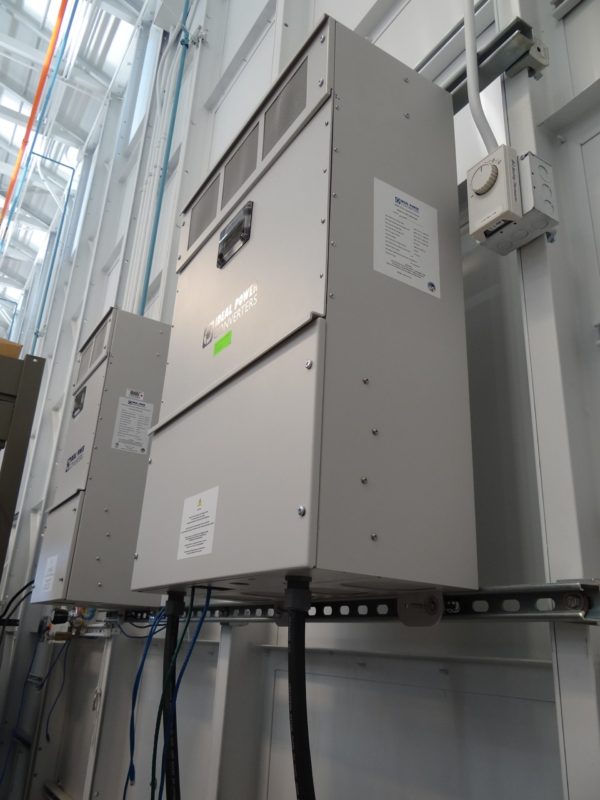
Company: RES. Technology: RESolve
Multi-disciplinary renewables engineering firm, RES, has become one of the early movers in constructing large-scale storage projects, with 88MW under its belt already and another 200MW under development.
At the heart of the projects it undertakes is its proprietary ‘RESolve’ control system, which integrates the energy storage unit with the renewable generation source, and both of those with the grid. RESolve has been designed to allow the overall system to offer a variety of grids protection and support services and thus to benefit from multiple revenue streams.
“RES has built up significant experience with projects in 10 or so different areas, across a number of applications relying on multiple revenue streams,” says Goldie-Scot. “This experience will no doubt prove very valuable for future projects.
“The RESolve platform has mostly been applied for frequency regulation applications thus far, but is being utilised for other applications in a few project,” adds Simon.
Company: Younicos. Technology: YCube
One of the trailblazers in software-based battery management to enable multiple applications, the German-US company grew out of a research lab rooted in Germany’s solar and wind industries.
The first company authorised to provide primary frequency control with batteries in Europe, Younicos has executed numerous utility-scale grid services projects in Germany. The company has also launched its own range of hardware: the Y.Cube is a plug-and-play system that combines a lithium-ion battery with Younicos’ power conversion system.
“The Y.Cube plug-and-play [integrated power converter and storage] system can work with multiple technologies and is modular,” GTM’s Simon says.
While Logan Goldie-Scot agrees that Younicos has been another leading-edge company, it faces a battle to remain at the front of the pack as the industry ramps up.
“Younicos is one of the leading energy storage software providers and system integrators. It has struggled to compete for some of the larger tenders recently though, losing out to integrated solutions providers and developers such as AES, RES and Invenergy that have their own software platforms.”
Company: Saft. Technology: Intensium li-ion battery
French company Saft made the news recently when it agreed to a US$1 billiion buyout from oil and gas giant Total.
Prior to the acquisition, the company had involved in various trial projects around the world, supplying its lithium-ion batteries to a number of projects focusing on renewable integration in remote areas, such as islands, where electricity prices are high. Projects include a 1.2 MW installation for a remote community in Alaska, a system for renewable integration at the Anahola solar PV plant in Hawaii, and a recently awarded contract for 10MW of energy storage in Puerto Rico.
BNEF’s Goldie-Scot says of the deal: “This is the largest ever M&A deal for an energy-storage provider. Within energy storage, only a few deals for battery-materials suppliers have surpassed it. Despite this, the acquisition is unlikely to disrupt the sector significantly. Total will gain a foothold in the market but the company will not go head-to-head against larger manufacturers, such as LG Chem, Samsung SDI, Tesla and Panasonic, in terms of volumes.
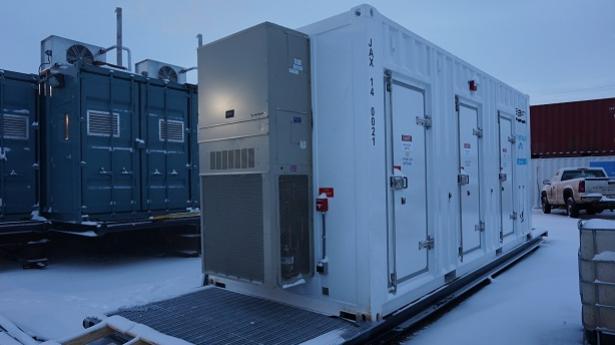
Company: AES. Technology: Advancion
AES’ Advancion system is designed to function as an alternative to peaker power plants, providing grid support at times of high demand. The fourth generation of the Advancion was unveiled at the end of 2015, offering greater power density and introducing the ‘Advancion Node’, a new modular building block for its storage systems.
AES is expanding internationally with projects underway in the UK, Netherlands and Chile. It recently said it was looking to add the Philippines, India and the Dominican Republic to that list by the end of the year. AES operates one of the largest battery storage fleets of any company worldwide, with some 384MW of assets operational.
“AES is moving towards greater standardisation with the Advancion platform, which is likely to lead to reduced costs and faster deployment times,” says Simon. “AES’ partnerships with leading battery manufacturers also give it an edge in terms of all-in system pricing.”
Company: AMS Technology: Hybrid Electric Buildings
It seems likely recent investors like Arnold Schwarzenegger have faith that Advanced Microgrid Solutions (AMS) CEO Susan Kennedy understands issues driving the US market – Kennedy was once chief of the California Public Utilities Commission (CPUC), with ever-increasing distributed generation on its networks.
As well as a large-scale portfolio that includes a 3.5MW project for a water treatment plant in California, the company is targeting the distributed grid market with aggregated commercial storage installations that also serve utility functions. The company is likely to get its chance to build further experience with a 50MW award of mandated behind-the-meter storage under long-term capacity contracts from utility Southern California Edison (SCE).
AMS claimed it could be purchasing up to 500MWh of Tesla Powerpacks, so confident was AMS in the technology’s suitability, Kennedy said.
“Advanced Microgrid Solutions pursues a hybrid approach, deploying a portfolio of projects across multiple customers’ sites which can be leveraged to provide grid services for local utilities while also providing services to building owners such as demand charge management,” GTM’s Brett Simon says.
“It remains to be seen whether Engie’s acquisition of Green Charge Networks will impact AMS, since the utility is also an investor in the latter company,” Goldie-Scot says.
Company: Greensmith. Technology: GEMS IV
A big winner in the early-stage US market of 2014 with as much as a third of 61.9MW deployed at grid scale and behind the meter that year utilising its control platform, GEMS, Greensmith appeared to keep pace with the market, with the software-driven system now in its fourth version.
Announcing some big grid-scale wins in 2015, the company attracted investment from E.On at the end of the year.
While the company provides turnkey systems, it also provides software-as-a-service. This emphasis on software extends to interactive storage modelling and forecasting tools included as part of the GEMS IV platform. Greensmith claimed to have reached a 70MW “milestone” in deployments at the beginning of April.
“Energy management software provides opportunities to maximise value of energy storage.[Greensmith is] Involved in several utility-scale projects in the US where [its] software has been applied for multiple applications, across different technologies,” GTM’s Simon says.
“The company has developed a good reputation for being a leader in energy storage software and integration,” Logan Goldie-Scot confirms. “Although its activity has been limited to the US, it’s been involved in some fascinating projects and has an impressive range of solutions spanning multiple applications.”
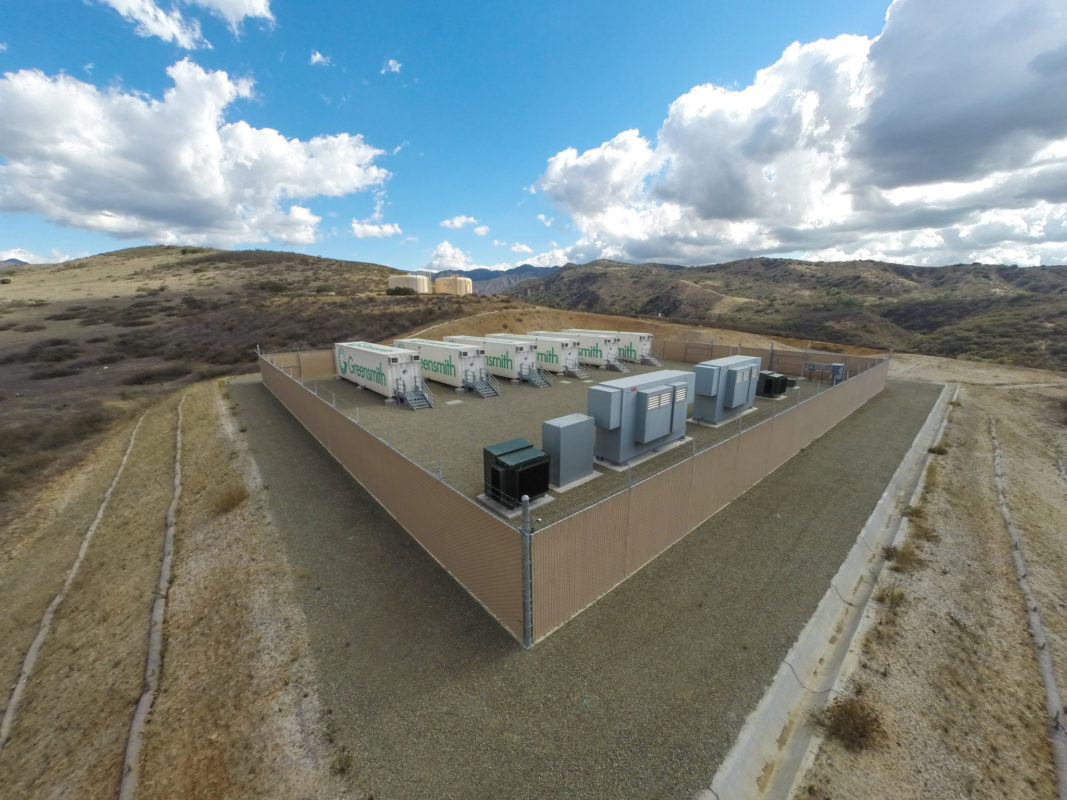
Company: Geli. Technology: Internet of Energy
Growing Energy Labs Inc (GELI) is one of the few pureplay software providers finding a foothold in the US market.
It is debatable whether Geli is the first to coin’ Internet of Energy’ as a phrase, but the company uses it to describe its software and networking solutions for energy storage. It has caught the market’s imagination enough to attract US$7 million of investment from Shell Technology Ventures (STV) in April.
Geli has also been awarded a grant from the US Department of Energy Advanced Research Projects Agency – Energy (ARPA-E) to control more than 100 distributed energy assets and demonstrate an automated transactive energy market. It also has a partnership with solar inverter maker Tabuchi Electric and a four-way tie up with global electrical supplies specialist Gexpro, LG Chem and Ideal Power.
“Geli’s partnership with Gexpro positions them to have greater behind-the-meter opportunities as Gexpro increases its energy storage activities,” Simon says.
“Geli stands out from other software companies in that it is explicitly a pureplay software company, and is looking to license that software to others, or to enable customers to use its online tools to inform their decisions,” Goldie-Scot says.
Company: Enphase. Technology: AC battery
Much was made over possible rivalry between Enphase and Tesla as both did their best to build up anticipation for their entry into the residential battery market. After a wait-and-see 2015, Enphase’s battery for home systems, which comes in a modular 1.2kWh design, is now available for installers to order in Australia and New Zealand.
Priced at around AU$1,150/kWh (US$838/kWh), the bi-directional device’s AC coupled configuration means it can be retrofitted to existing solar systems and installed in just over an hour and a half, the company claims.
With lithium iron phosphate battery materials supplied by Japan’s Eliiy Power, it comes with a 10-year warranty and is expected to launch in the US late this year before a rollout to selected European markets in 2017.
“Enphase announced a trial project with SA Power Networks in Australia at the end of 2015 to gain insights on how energy storage can be utilised for load management and explore new business models for utilities,” GTM’s Simon says, adding that the company “may have the opportunity to pursue energy storage offerings for existing solar PV customers using Enphase products”.
Company: Nissan & Eaton. Technology: V2G and 2nd life EV batteries
One of several partnerships exploring the repurposing of second life EV batteries, Japanese car company Nissan’s partnership with engineering giant Eaton on second life batteries and vehicle-to-grid (V2G) is notable for the scale its participants could achieve.
In addition to a technology partnership which has developed a control centre for dispatchable behind-the-meter energy storage resources, the pair is launching xStorage, a residential storage system for the UK. While there are potential drawbacks to using second life batteries, such as the unpredictability of remaining life span, the units could be sold as cheaply as US$4,500 for a 4.2kWh battery repurposed from Nissan’s popular LEAF EVs.
The range of major announcements from their collaboration so far is completed with a trial of vehicle-to-grid technology in Britain. Owners of 100 LEAFs and electric goods vehicles would be able to sell surplus electricity from their vehicles into the grid.
Honourable mentions
In addition to the above list, there are hundreds of companies doing exciting things, either from a technical or business point of view. Some of those include Stem, which was another big winner in California’s utility mandates and operates on a similar basis to AMS in providing both behind- and front-of-meter benefits. SimpliPhi Energy, a provider of off-grid systems which came out of the movie business, supplying energy solutions to location shoots, now claims to have dealt with thermal runaway in lithium batteries. Ultracapacitor maker Skeleton Tech has been one of the recent big magnets for VC cash. A small German company, ASD Sonnenspeicher, claims to have developed a system for placing stationary storage batteries in parallel circuits, allowing for simple scalability, while US start-up 24M has been pinpointed by some analysts as having what looks like an effective, energy-dense variation on lithium battery chemistry in pre-commercialisation stages. Meanwhile, for all the excitement over next-gen batteries and growth in the US market for them, North America’s most used energy storage provider is Trojan, maker of advanced lead acid devices.




